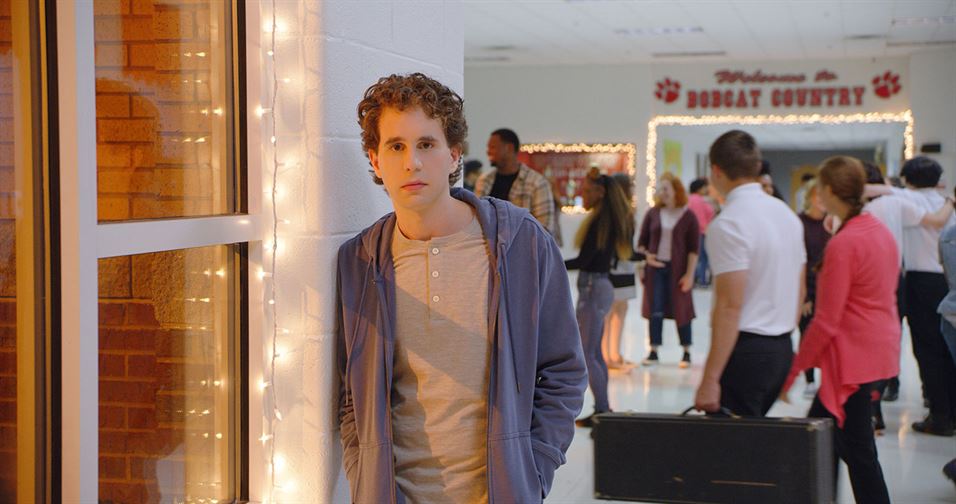Stephen Chbosky, director of the new “Dear Evan Hansen” movie, brought the Broadway smash hit to the big screen.
Chbosky has also directed other films such as “Perks of Being a Wallflower,” “Beauty and the Beast,” “Rent” and many other fan favorites. Similar to those movies, Chbosky did not miss the mark with “Dear Evan Hansen.”
Evan Hansen, played by Ben Platt, is a high school boy with immense anxiety. When he writes a note to himself as a therapy assignment, the school bully, Connor Murphy, played by Colton Ryan, finds it and keeps it.
Later, Connor is found dead with the note in his pocket, which makes it seem like he wrote his suicide note to Evan. This starts a lot of trouble in school and with the Murphy family.
Throughout the film, Platt does an incredible job of portraying an anxiety-ridden high school student. He portrays certain signs that we see grow and disappear as time goes on depending on what situation Evan is in. The character development from beginning to end is what makes the movie feel so real.

Kaitlyn Dever plays Zoe Murphy, Evan’s love interest and Connor’s sister.
Photo courtesy of Everett Collection
Kaitlyn Dever, who plays Zoe Murphy, Evan’s love interest and Connor’s sister, has been in many well-known films before such as “Booksmart,” so it was known her acting would not fall short. Achieving expectations, she brought Zoe so much spunk and angst. Viewers even saw a hint of her soft side, which was perfect for the character.
Together, Platt and Dever were an incredible cast, despite the comedic efforts to make Platt, who is 28 years old, look like a 17-year-old boy.
Not only did the actors bring life to the scenes, but so did the new aspects of the movie.
Contrary to the general opinion of most critics, the new ending to the film was much needed. It added so much more for each character and really brought the movie full circle, despite being different from the Broadway ending.
While a few new songs were added for Connor, Alana Beck, played by Amandla Stenberg, also received some of her own.
Alana’s new song, “The Anonymous Ones,” added a certain realness to the movie. Her relevance to the show, as well as her and Evan connecting on a deeper level, was emphasized through it. The audience themselves connect with Alana more, and the song certainly resonates with them. This was a missing piece that needed to be in the live version.
In another scene, when Connor’s parents and sister are singing “Requiem,” viewers are able to see the characters’ intentions and why they are singing the part they are. This is just one example of how the editing played a huge role in showing how the characters respond to each other, helping to make the Broadway show more clear.
One track the movie lacked was “Good for You.” Supposed to be sung by Evan’s mother, this song plays a vital role in the show. It brings the climax together; we see everyone’s anger, disappointment and frustration. Without it, the climax did not hit as hard as it should have.
For fans of the Broadway musical, some other songs, such as “Anybody Have a Map,” “Disappear” and “To Break in a Glove,” were removed, but these did not hinder the film in any way.

Platt does an incredible job of portraying an anxiety-ridden high school student.
Photo courtesy of Everett Collection
All together, Chbosky did a great job turning the Broadway original into a movie. This tear-jerker is an excellent portrayal of mental health issues and how everyone deals with different situations. Teens and young adults deal with anxiety, depression and suicide every day, and this movie helps put those watching in their shoes as they experience similar everyday struggles.
If you are struggling with mental health, reach out to Montclair State University’s Counseling and Psychological Services (CAPS). You are not alone.



